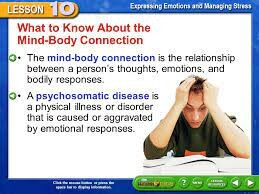Did you know? Being GRATEFUL has numerous benefits. I am going to touch on those benefits for you to see how you are implementing gratitude in your own life.
Gratitude has been known to help individuals build connections to others, increase optimism, helps increase happiness and increases resiliency. There are also a variety of benefits on HEALTH that I wanted to share with you!
6 Health Benefits of Gratitude
1. Lowers Blood Pressure
The calming influence of gratitude can lower blood pressure. You don't even need to have a daily practice to receive the benefits! Just doing so once a week resulted in a significant decrease in systolic blood pressure for participants in a 10-week study. The group that implemented gratitude were less hostile and had more healthy habits.
2. Decreases Risks for Depression
Gratitude increases happiness and decreases the risks for depression, increases your resiliency to stressors and is considered a protective factor against both anxiety and depression, as gratitude increases dopamine, serotonin and oxytocin, the feel-good transmitters!
3. Inflammation Reduction
Long term, or chronic, inflammation is detrimental to our health but gratitude can lower inflammation! Control studies that looked at heart symptoms over 8 weeks showed inflammatory markers were lower in those that practiced gratitude.
4. Improves Sleep
Gratitude helps us to sleep better, even without a conscious gratitude practice. Studies show that those with the gratitude practices had more quality sleep and less fatigue, as well as getting to sleep faster!
5. Lowering Stress
Stress is reduced with re-framing and gratitude! Stress has a significant negative impact on our health, as it is harmful to hormonal health, gut health and overall health. Stress hormones like cortisol are 32% less in those that practice gratitude.
6. Builds Immune Response
When you are reducing inflammation, improving sleep and lowering stress, your immune system is stronger! Studies surveying first year law students found that optimistic students had higher fighter cells and a greater immune response with gratitude!
When these elements improve, sleep and lowered stress, less inflammation and depression, many people improve other areas of their life by default. They feel better and make better choices, like adding in exercise, nutritious foods and avoiding unhealthy behaviors like drinking and smoking. Adding gratitude into your routine has a lot of significant payouts on your health! Even if you are not doing something every day, find ways to implement gratitude regularly.
Some easy tips for adding in gratitude can be sharing appreciation for others, write thank you notes, reflect on your day either in thoughts or journaling, Or just taking time adding in gratitude to something you are already doing keeps it easy- what are some positives about your day? Reflect on your day in the shower or laying in bed before you fall asleep. Or start your day with a cup of coffee and the positives about the day ahead. However you add it in, keep doing it! The benefits are well-worth it!
Do you have some gratitude tips?

Stress Management is critical to managing our stress. The discoveries on how stress impacts us CAN be serious but should not be of concern, as there are a number of strategies to reduce stress.
Some strategies include maintaining a healthy social network, regular physical exercise and adequate sleep nightly. These are considered the building blocks for a healthy lifestyle.
When we have adequate social connections, we can talk about issues and problem solve, better reducing our negative effects on our physical and mental self. Enjoying the company of others, especially trusted relationships, reduce stress. Laughter also reduces stress. It is during social times that we are able to lessen the focus on the issues that are creating stress and enjoy life. When our social group is not the best option, talking to a church pastor or a therapist might be another option to reduce stress.
Regular exercise, even just walking or dancing in our kitchen, reduces stress. Not only does it release endorphins that make you feel good, but it also gives you some time to yourself to clear your head. Even if you can't make it to the gym every day, try to fit in some form of exercise into your schedule, even if it's just a brisk walk around the block.
And sleep. Stress levels go up, only further amplifying our stress when we are not getting adequate sleep nightly. Practicing good sleep hygiene, such as developing a calming routine to implement nightly, can be very beneficial in managing sleep. Limiting electronics an hour before bed, reading a book, journaling to get those to-do's out or talk about your day, and taking a warm bath with epson salts can all be good tricks to implement. Magnesium is a common need for people under stress, as it is depleted with stress, so adding it into our evening routine helps to calm our nervous system. Practicing deep breathing when laying in bed is another way to focus on adding calm and inducing sleep.
Sometimes it is difficult to feel we are managing our stress in this busy world. But, if we are watching what we can and implementing regular tools to reduce stress, it can stay manageable and will not impact our day to day life or our health.for the long term.
If these tools are being regularly implemented but you need more, let's talk! There are solutions and ways to reduce your stress and benefit your health... it just takes time. :)




